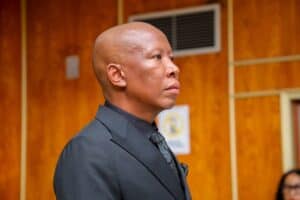About 2 000 investors lost about R3 billion in BHI Trust that allegedly used money from new investors to pay interest to earlier investors.

The FSCA has barred Craig Warriner from BHI Trust for 30 years after investigating the conduct of the BHI Trust and Warriner between 7 February 2013 and 30 September 2023.
Warriner’s debarment means that he will not be allowed to provide or be involved in the provision of, financial services, act as a key person of a financial institution and provide specified financial services to a financial institution, whether under outsourcing or otherwise.
The Financial Sector Conduct Authority (FSCA) investigation found that the BHI Trust and Warriner, in his capacity as a trustee of BHI Trust, acted as discretionary financial services providers (FSPs) by exercising discretion in buying and selling securities on behalf of several clients.
Therefore, they were therefore required to be authorised as a Category II FSP, but they were not, contravening section 7(1) of the Financial Advisory and Intermediaries Service Act.
In addition, Warriner, in his capacity as a trustee of the BHI Trust, rendered financial services to clients on behalf of BHI Trust while it was not authorised as an FSP, contravening section 13(1)(a) of the FAIS Act.
The trust was provisionally sequestrated on 25 October in an application brought by Cawood Attorneys. Gert de Wet and Sumaya Mohamed from Kaap-Vaal Trust were appointed as the joint trustees. BHI Trust was formally sequestrated on 7 February.
ALSO READ: BHI Trust: FSCA expands scope of investigation to financial services providers
Warriner admitted to running a Ponzi pyramid scheme
According to a report filed in terms of section 81 of the Insolvency Act that the joint trustees released recently, Warriner said BHI Trust was a trading trust.
“It was a trust that took money and traded it on a short-term basis. It traded Anglo American, Billiton, it traded Naspers, it traded Standard Bank, and British American Tobacco. We concentrated on all the 40 stocks, which is the top 40 stocks.
“You see, money goes in; I take it. People want money out, so I rob Peter to pay Paul. That is after 2008 and then what happens is that because you are showing decent returns, it becomes the Ponzi pyramid scheme … And the money comes in and it goes out.”
Warriner handed himself over to police last year, admitting to fraud. He appeared in the Palm Ridge Magistrate’s Court south of Johannesburg a few times and has not been granted bail.
Although there have been reports claiming that the BHI Trust was “backed by” and “registered with the FSCA”, the regulator said neither the BHI Trust nor Warriner were licensed with the FSCA in any manner.
The focus of the FSCA investigation was on the activities of the BHI Trust and the possibility that it was conducting unauthorised financial services business and unauthorised collective investment scheme business.
The FSCA also confirmed earlier that none of the parties under investigation were authorised as financial services providers or licensed as collective investment schemes managers.
ALSO READ: More than 2000 may have been scammed in R3bn Ponzi scheme – report
How to check you deal with a registered person or entity
According to the FSCA, you must always check that an entity or individual is authorised by the FSCA to provide financial products and services, including giving recommendations about how to invest.
It is also important to check what category of advice the person is registered to provide, as there are instances where companies or people are registered to provide basic advice for a low-risk product and then offer advice on far more complex and risky products.
In addition, consumers must also ensure that the FSP number the entity or individual offering financial services uses matches the name of the FSP on the FSCA database.
Consumers can use one of these methods to confirm the status and FSP number of a service provider or someone who claims to be an authorised service provider:






